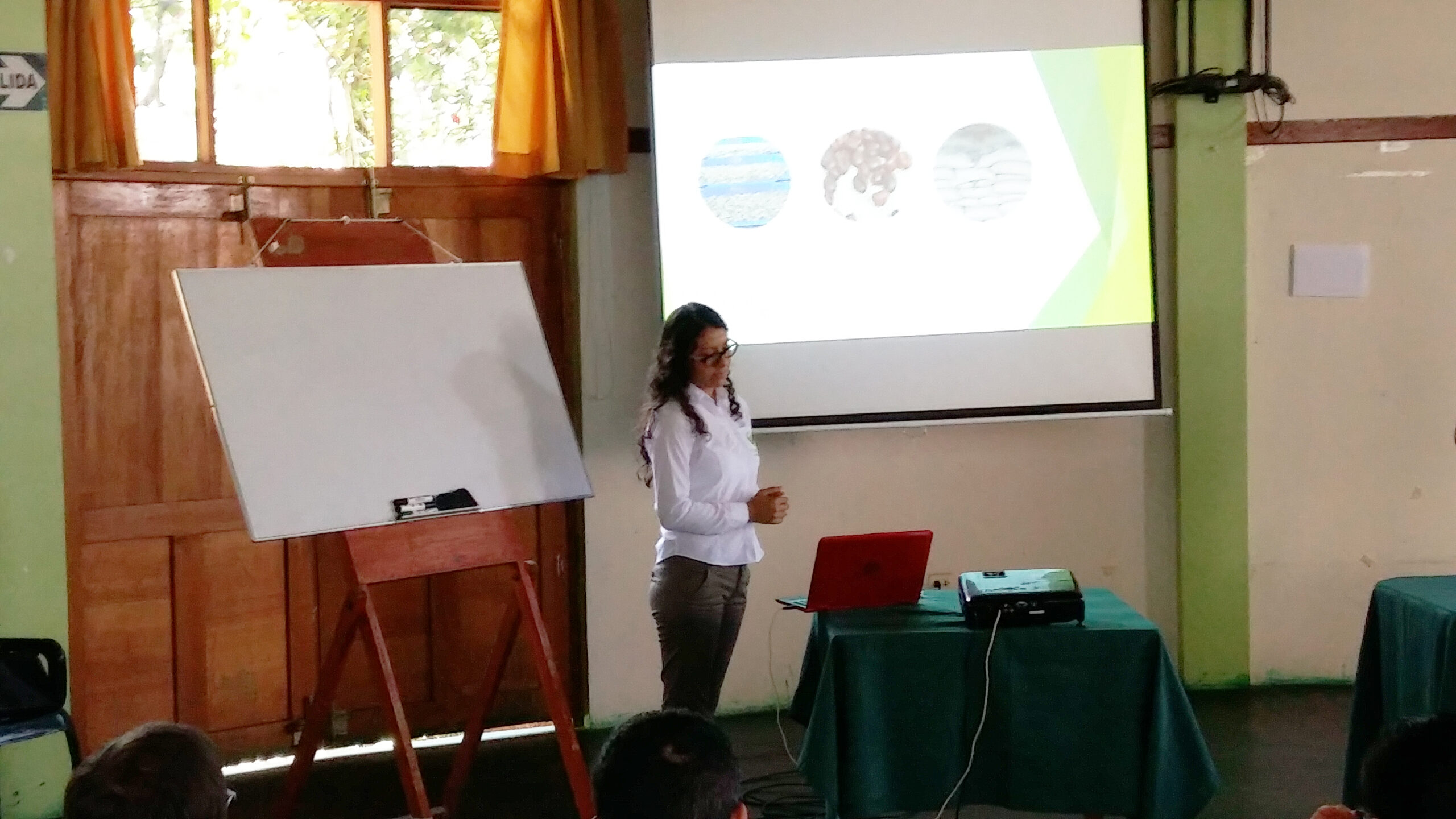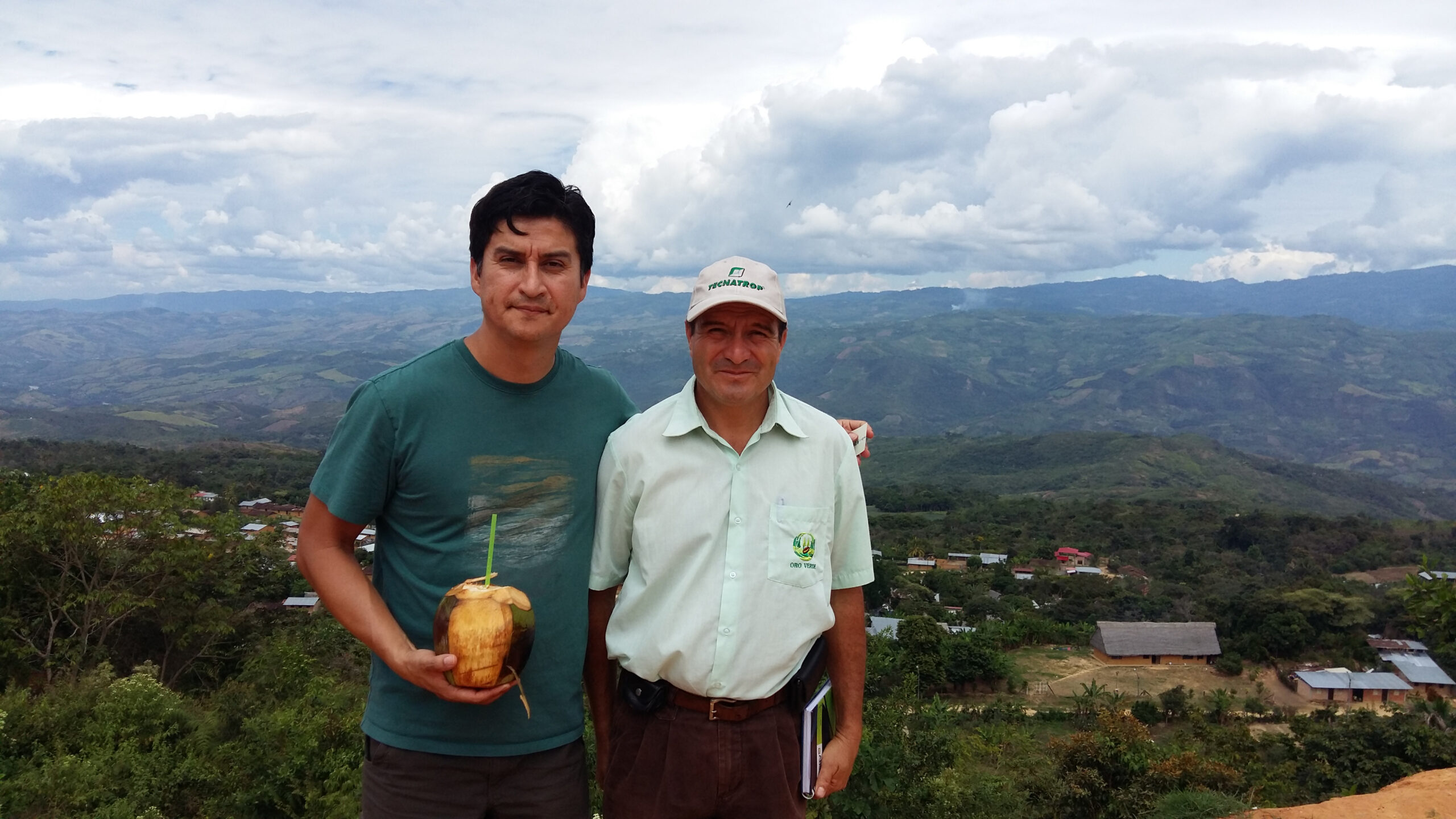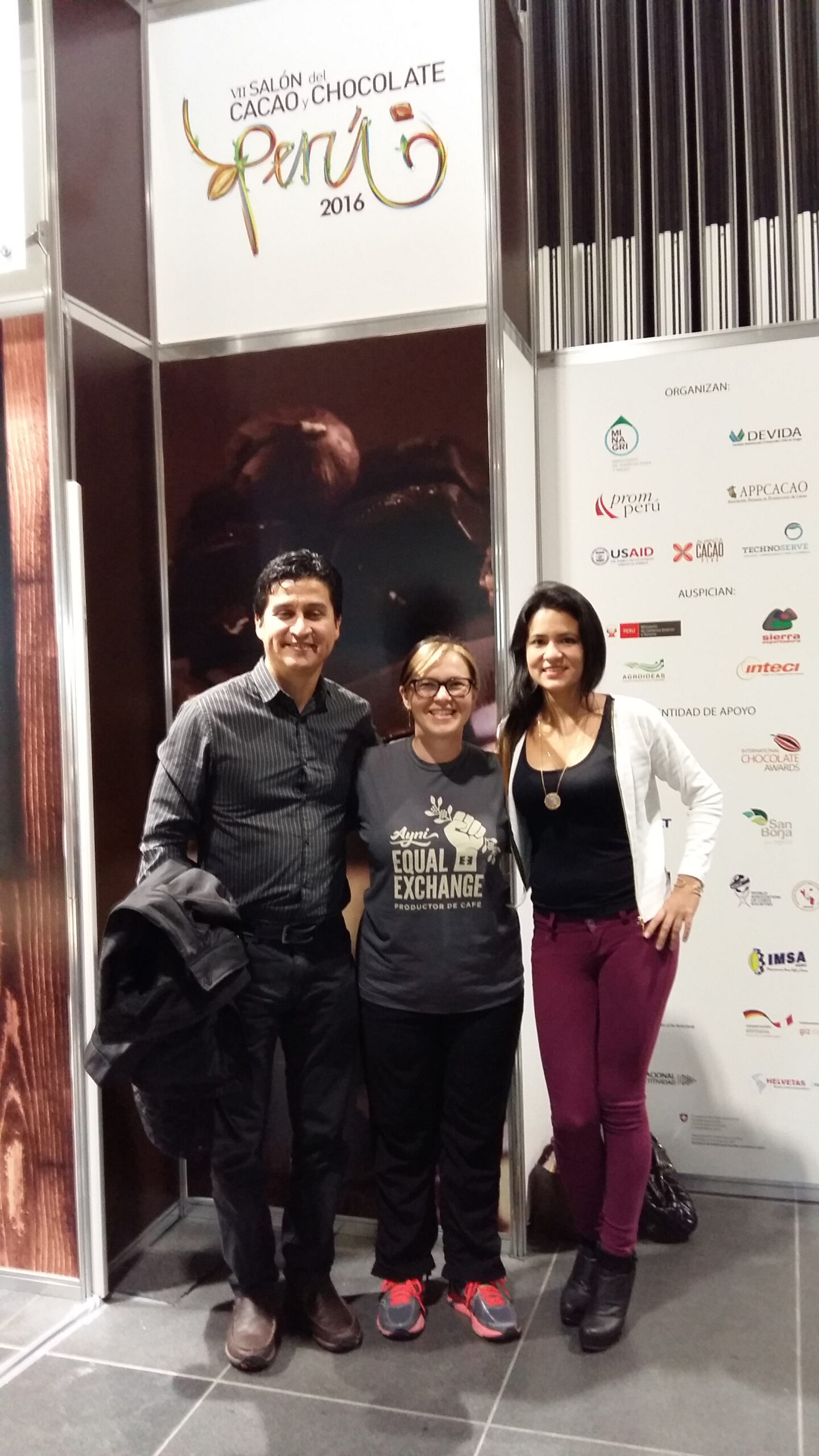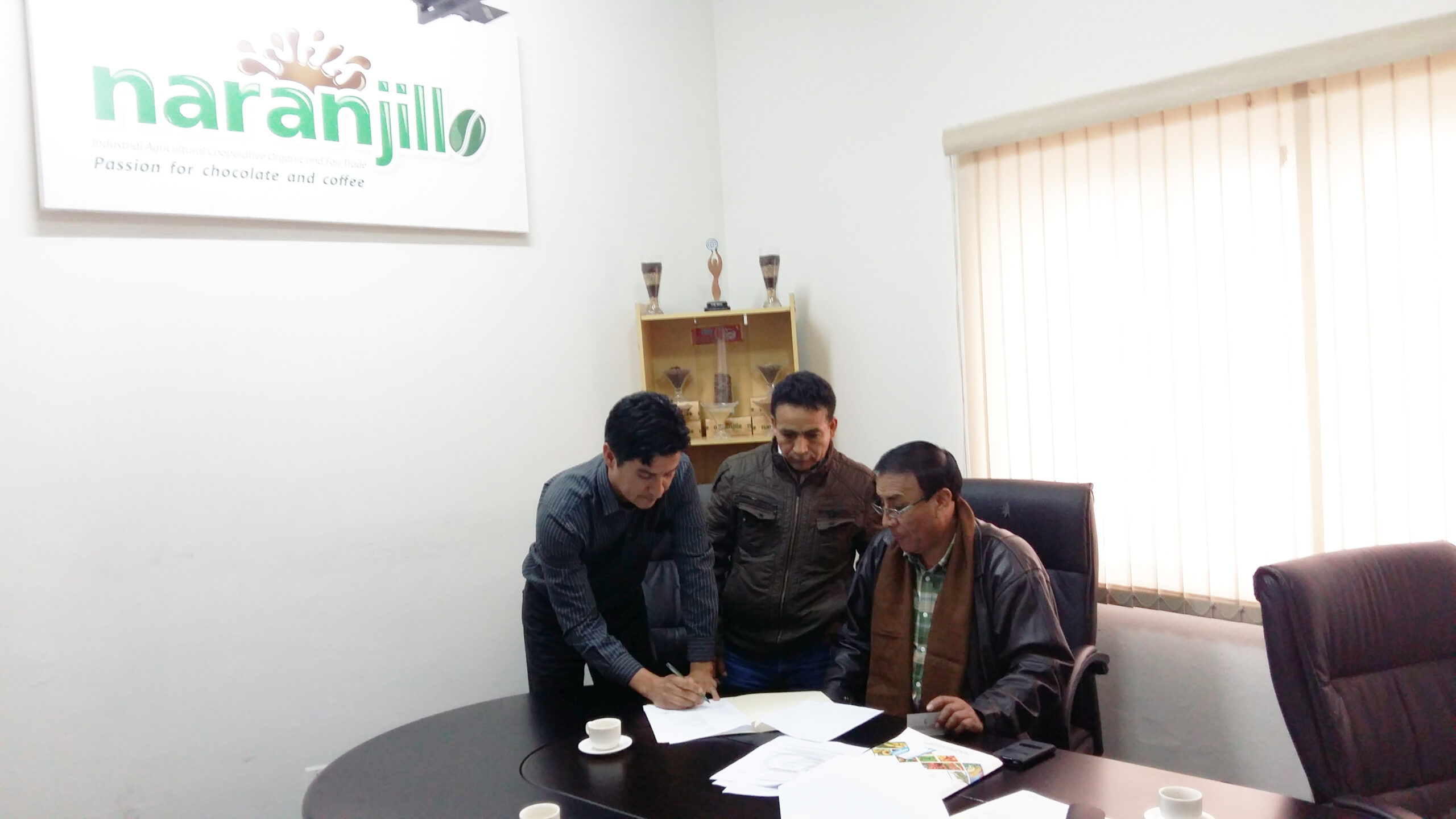Interview of Renato Sobrino by Amber St. Louis
Amber: You recently traveled to Lima, Peru to attend the Salon de Cacao y Chocolate. Can you give an overview of what the event is?
Renato: The Salon is a three-day event intended to showcase and explore different aspects of the Peruvian chocolate industry. It features numerous conferences on topics ranging from sustainable agricultural practices and rainforest preservation to the various aroma profiles of cacao. Lectures and demonstrations are given by both national and international experts on the preparation of chocolate-based products. There is also an exhibition of cacao in all its different forms.
The ultimate goal of the salon is two-fold. First and foremost, the event is meant to promote Peruvian cacao – its quality and benefits – and the producers themselves. Second, the event is meant to generate business and ultimately create economic growth by expanding international relationships in the cacao and chocolate industry. I was invited as a potential buyer, for example.
This year, the salon included tours to see farmer producers first hand. These tours were arranged in part by the Peruvian government, who played a large role in the event itself. The farmers we visited were in the San Martin region of Peru, surrounded by Amazon rainforest. This was a great opportunity for everyone to deepen their understanding of the hard work that goes into producing cacao.
Amber: What were the major themes of the Salon?
Renato: The major themes of the Salon revolved around the idea of quality. There was a significant promotion of Peruvian cacao moving into the fine cacao space. Until recently, the cacao production in Peru was more focused on high-yield varieties. Now, there is a strong push towards quality over quantity. The government is very involved in this movement and is working with producers to encourage this change. That is not to say that high yields is not also a priority, but the goal is for Peru to be considered as a supplier of finer, higher quality cacao as well.
The second major theme of the salon was looking at quality from the perspective of heavy metal prevention. Contamination from heavy metals, such as cadmium, has been an ongoing issue for cacao farmers in Peru and elsewhere. At Camino, we’re fortunate to have the ability to test for heavy metals to make sure our products are well below safe standard levels for consumption, but preventing the contamination at the production level would still benefit everybody. Recent research has showed promising findings concerning natural prevention techniques, so this recurring theme at the salon was presented in a positive way and focused on the future.
Amber: Which of Camino’s producer partners were involved with the event and how are those co-operatives doing?
Renato: I had the opportunity to meet with two of our partner co-operatives as part of the tours arranged by the salon. The first was Acopagro, a cacao-producing co-operative that is dedicated to going above and beyond for its over 2000 members. As a co-operative, they offer many workshops from nutrition and violence prevention to kitchen safety and home composting in order to educate and improve the lives of members. They offer banking services such as savings accounts and grants to attend towards personal education. Acopagro also boasts free checkup campaigns to promote healthcare as well as life insurance. As a business they are doing very well. The co-op has a great management team and I was impressed by their highly systematic production process. Their sales are increasing at healthy rates with no sign of slowing down.
Next, we visited Oro Verde, another cacao producing co-operative located in Lamas. Oro Verde has a total of 1687 members, many of whom are women. There I met with Violeta Lozano, the manager of sales, a rare title for a woman in Peru, and rural Latin America in general. She talked about the push towards gender equality in their cooperative, and the general appreciation of female members. Oro Verde is actually certified through Consejo Regional De Las Mujeres Cooperativistas to recognize their dedication to gender equality values. Overall, they are doing well and I look forward to watching them continue to grow.

I also personally met with another of our producer partners at the end of the salon. Naranjillo, a 50-year-old co-operative that both produces cacao as well as manufactures it in their own factory. I met with them to strengthen relationships, find out how they are doing, and sign our annual contract. Naranjillo has come a long way, particularly in the past year. After struggling for several years, a partnership with Althelia Ecosphere, a financing group dedicated to sustainable initiatives, is helping to turn things around. Their partnership goes beyond funding, offering support in many key areas with the help of their specialists. While visiting, I had the chance to speak with some of the people from Althelia, and they too expressed how excited they were about the partnership.
Amber: You also toured the chocolate factory where our chocolate chips are made. What were the highlights of that visit?
Renato: My intention in visiting the chocolate chip factory was to look at how the factory is being managed and to explore their capacity to take on new products. I was very pleased with what I saw. They had outstanding procedures in place to prevent cross-contamination of allergens, an issue that is very important to many of our customers. As a whole, their quality assurance program is very interesting and goes beyond the average operation. It is set up with the goal to continuously make improvements to their system, featuring a sort of before and after wall to showcase all of these improvements. There is an ongoing incentive for workers to come up with new ways to make the factory both safer and more efficient, and everyone takes great pride in this. I found this outlook of constant improvement very motivating. Overall, they are running a highly developed operation that was great to see firsthand.
Amber: What was the most inspiring part of the event?
Renato: The most inspiring elements of the event came from visiting our producer partners, Oro Verde and Acopagro. At Oro Verde, the changes in policy put in place to empower women was really great to see. They are not only treating their female members very well, but they are actually recruiting women into positions of leadership. This is directly related to the non-discrimination, gender equity principle of fair trade. It is my hope that this movement inspires other producer co-operatives as well so that we can see more female empowerment in the industry going forward.

At Acopagro, I was inspired by how members are treated as a whole. The co-operative is really designed with the goal of taking care of its members long-term. The numerous benefits that come with membership are evidence of this, but perhaps the best example is the retirement plan. At Acopagro, workers are set up with a retirement plan in the form of trees planted on a dedicated piece of land. In 10-20 years from the time the trees are planted, their value increases significantly, and the financial investment made by members becomes a viable retirement solution. This sort of comprehensive care for members is very admirable and helps to set a new standard for similar operations.
For me, the most important part of the event and the trip as a whole was to build and strengthen connections with our partners. This goal was much easier to achieve due to these great operations in Oro Verde, Acopagro, as well as the others. I left feeling both inspired and proud to work with such great partners.












